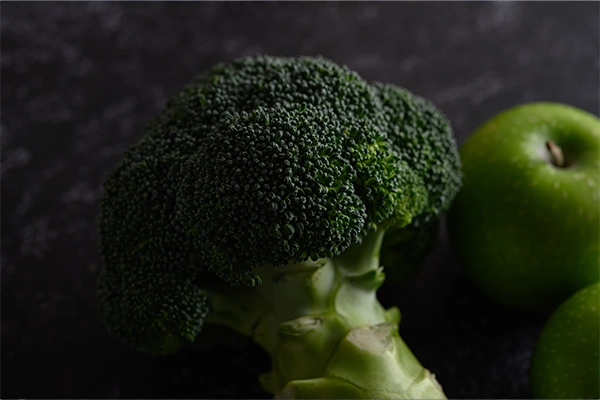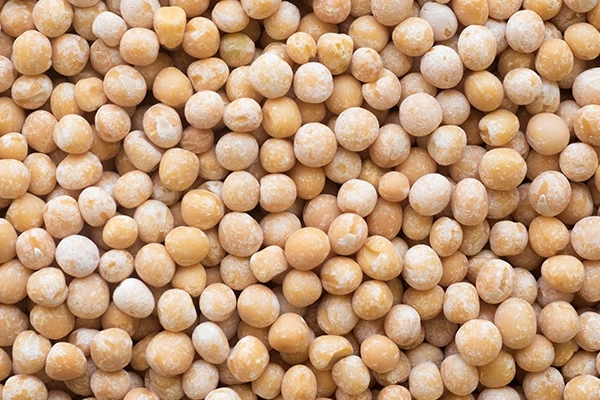Protein in vegetarian diet is one of the most important concerns of people who switch to this lifestyle. Fortunately, there are plenty of plant-based protein sources that can meet your body’s needs. In this article, we will examine some of the most important sources of vegetarian protein source in a diet.
Legumes:
Legumes, including beans, lentils, and peas, are among the richest sources of protein. These foods are not only rich in protein, but also provide essential fiber, vitamins, and minerals.

Soy and its products:
Soy and its derived products such as tofu, tempeh and soy milk are among the best sources of protein in vegetarian diet. Soy contains all essential amino acids and is considered a complete protein.
Whole grains:
Whole grains such as quinoa, oats, and buckwheat are also good sources of protein. Quinoa is especially a complete protein that contains all the essential amino acids.
Nuts and seeds:
Nuts (such as almonds, walnuts and pistachios) and seeds (such as pumpkin seeds, chia seeds and flax seeds) are with high protein vegetarian foods. These foods also contain healthy fats and fiber. Leafy green vegetables: Although vegetables do not have as much protein as the previous sources, leafy green vegetables such as spinach, kale and broccoli also contain significant amounts of protein.
Enriched bread and pasta:
Many bakery products and pastas today are enriched with vegetable proteins and can be a good source of protein in vegetarian diet. Plant-based meat substitutes: Meat substitute products made from plant-based proteins, such as plant-based burgers or plant-based sausages, can be good sources of protein.
Types of vegetarian protein sources
Protein in vegetarian diet comes from a variety of sources. Next, we introduce the most important sources of protein:
1. Legumes:
- Beans (red, white, black)
- lentils
- peas
- cotyledon
2. Soy and its products:
- Soybeans
- tofu
- Tempe
- Soy milk
3. Whole grains:
- Quinoa
- Oatmeal
- Buckwheat
- Joe
4. Nuts and seeds:
- Almonds
- walnut
- Hazelnut
- Pumpkin seeds
- Chia seeds
- Flax seed
5. Green leafy vegetables:
- Spinach
Kale
- Broccoli
6. Enriched products:
- Bread and pasta enriched with protein
- Enriched breakfast cereals
7. Vegetarian meat substitutes:
- Vegetarian burgers
- Vegetable sausages
- Vegetable nuggets
8. Mushrooms:
- Button mushroom
- Portobello mushroom
9. Potatoes:
- Regular potatoes
- Sweet potato
10. Dry fruits:
- Dried apricots
- Dried figs
These high protein vegetarian foods provide vegetarians with a variety of vegetarian protein sources. The intelligent combination of these sources in the daily diet can provide the protein needs of the body well and improve the overall health in the vegetarian diet.
The importance of protein in vegetarian diet
especially important. This vital macronutrient plays many roles in the body, including building and repairing tissues, producing enzymes and hormones, and supporting the immune system. For vegetarians, ensuring adequate protein intake through plant sources is both a challenge and a necessity. There are a variety of protein sources that can meet the body’s needs. Legumes, soybeans, whole grains, nuts and seeds are high protein vegetarian foods that can be a good substitute for animal proteins. However, some of these sources are not complete proteins (containing all the essential amino acids), so intelligently incorporating them into the diet is important. Vegetarians should try to vary their protein sources to ensure they are getting all the amino acids the body needs. This is not only important for maintaining muscle mass, but also for optimal functioning of the immune system, metabolism and overall health of the body.
Practical tips to increase absorption protein in vegetarian diet
Increasing absorption protein in vegetarian diet requires attention and planning. In the following, practical tips for improving the intake and absorption of protein from plant sources are provided:
1. Diversity in vegetarian protein sources:
Eat a variety of high protein vegetarian foods to ensure you get all the essential amino acids. Combining legumes with whole grains can complete the amino acid profile.
2. Gradual increase in consumption:
If you are new to a vegetarian diet, gradually increase your protein intake to allow your digestive system to adjust.
3. Proper preparation:
Soak some protein sources such as legumes before cooking to improve absorption of protein and other nutrients.
4. Simultaneous use with vitamin C:
Consuming protein sources along with foods rich in vitamin C can increase the absorption of non-heme iron, which in turn can positively affect protein absorption.
5. Using proper cooking methods:
Cooking methods such as sprouting and fermentation can increase the digestibility and absorption of plant proteins.
6. Regular consumption during the day:
Distribute protein throughout all meals and snacks so that the body has constant access to this nutrient.

7. Attention to sufficient calories:
Make sure you’re getting enough calories, as a calorie deficit can negatively affect protein absorption and utilization.
8. Vegetable protein supplements:
If needed, use plant-based protein supplements such as pea or rice protein powder.
9. Smart combination:
Eat foods like “rice and beans” or “bread and lentils” together for a more complete amino acid profile.
10. Consultation with a nutritionist:
Consult a nutritionist to ensure you are getting enough protein in vegetarian diet.
Conclusion
Protein in vegetarian diet plays a vital role in maintaining the health and optimal functioning of the body. Despite common concerns about the lack of protein in this type of diet, this article showed that there are diverse and rich vegetarian protein source that can provide the body’s needs well. The key to successful supply protein in vegetarian diet is the intelligent combination of different sources It is vegetable protein. This ensures that all essential amino acids are received in sufficient amounts. Also, pay attention to practical tips to increase Protein absorption, such as proper preparation of meals and regular consumption throughout the day, can have a significant impact on the quality of nutrition. Finally, a vegetarian diet with careful planning and knowledge of protein sources can not only meet the body’s protein needs, but also It also helps to improve overall health, reduce the risk of chronic diseases and protect the environment. With a proper understanding of protein sources and how to use them effectively, vegetarians can enjoy a balanced, healthy and protein-rich diet.










